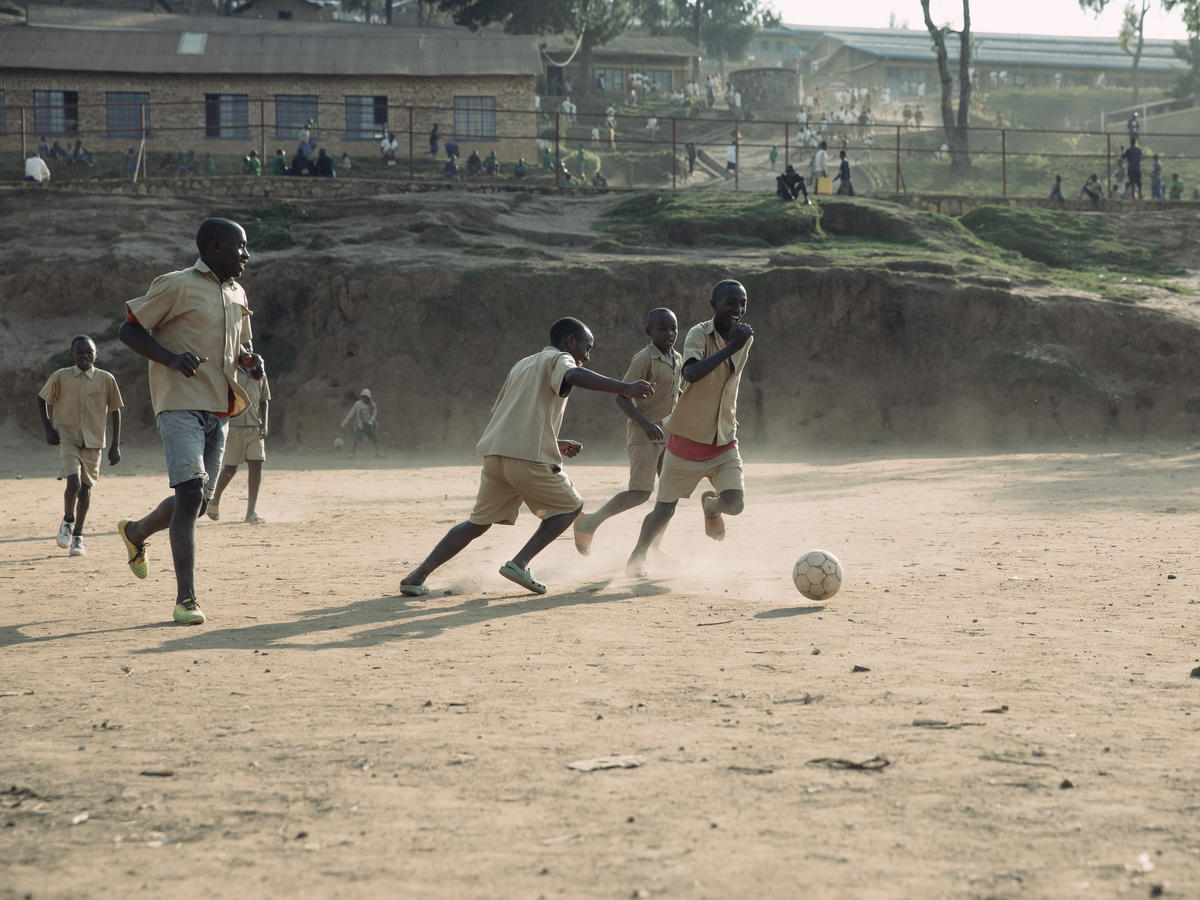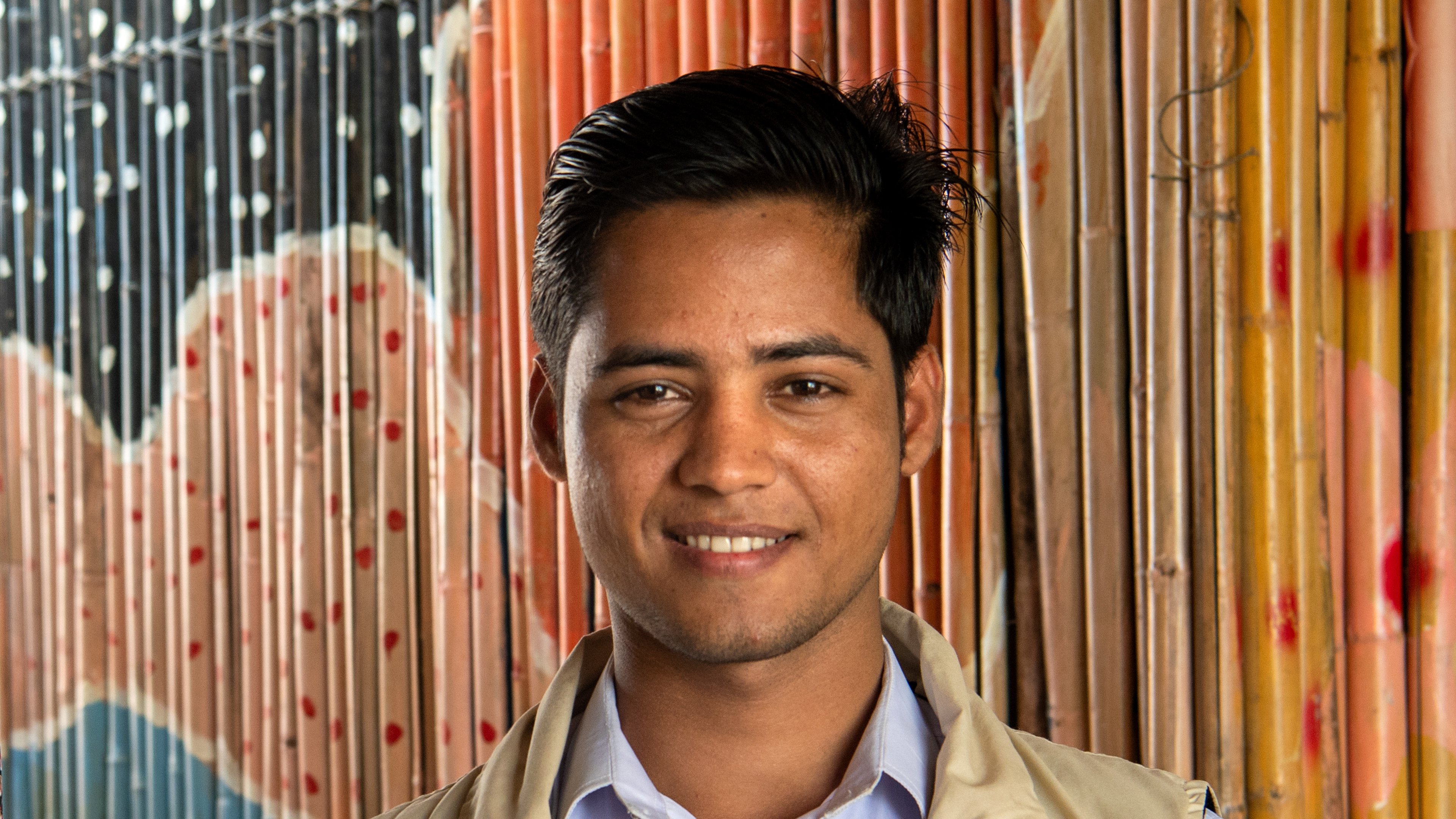Extensive abuse of West African refugee children reported
Extensive abuse of West African refugee children reported
UNHCR and Save the Children UK today released details of some of the disturbing findings of a joint assessment team recently commissioned by the two agencies to look into sexual violence and the exploitation of refugee children in West Africa.
Based largely on children's testimonies collected during a 40-day mission to the region in late October and November, the team reported evidence of "extensive" sexual exploitation of refugee children in Liberia, Guinea and Sierra Leone - much of it allegedly perpetrated by workers locally employed by national and international NGOs as well as by UN agencies, including UNHCR.
In all three countries, workers reportedly used "the very humanitarian aid and services intended to benefit the refugee population as a tool of exploitation," the team said.
Although the assessment mission was neither an investigation nor an in-depth research study - and therefore was not conducted with the same rigour as would have been required of either - UNHCR and Save the Children UK made details available because of the disturbing nature of the allegations, the apparent scope of the problem, and the need for immediate and coordinated remedial measures by a wide range of agencies and organisations.
The "Note for Implementing and Operational Partners" on sexual violence and exploitation of refugee children in West Africa says most of the alleged "exploiters" were male national staff who traded humanitarian commodities and services for sex with girls under 18. It says the practice appears particularly pronounced in places with significant and established aid programmes. The problem appears to be especially pronounced in refugee camps in Guinea and Liberia, it says.
In addition to aid workers, the paper also cites allegations of sexual exploitation against children by international peacekeepers and community leaders. In all, more than 40 agencies and organisations and nearly 70 individuals were mentioned in various testimonies.
The assessment team made clear, however, that it was not in a position to verify the allegations. Nevertheless, the number of allegations leaves no doubt that there is a serious problem of sexual exploitation demanding further action and investigation. UNHCR has already begun this process and a team of investigators is currently in the region carrying out a preliminary, low-profile investigation that will include determining how best to proceed without endangering the children involved. Some specific, unsubstantiated allegations collected by the mission will for the time being remain confidential pending further investigation, for the protection of the children or for reasons of fairness.
The investigative team currently in the region is working independently, with only logistics support from UNHCR. The team includes special UN investigators from New York, staff from the office of the UNHCR Inspector-General, and an outside expert on the sexual abuse of children.
The current investigation is part of a two-pronged approach that also includes an urgent and coordinated plan of action aimed at strengthening the protection of women and children refugees in general. A UNHCR working group has already drawn up a framework for implementation of numerous remedial measures to combat child abuse in the region. Measures underway or under consideration include:
- Increasing security and international presence in camps.
- Deploying more female staff.
- Establishing a reporting mechanism that provides refugees with a secure channel for raising complaints with senior UNHCR staff.
- Requiring camp leaders to report abuses by agency staff to senior UNHCR officials.
- Reviewing camp layout to ensure security and privacy.
- Improving the distribution of aid and services to ensure it reaches refugees and is not used as a tool of exploitation.
- Ensuring that humanitarian aid currently being provided to refugees meets minimum standards and basic needs.
- Undertaking measures to increase refugee access to the legal system to ensure prosecution of violators.
- Identifying refugee girls who are most vulnerable to sexual exploitation (e.g. from single-parent households, unaccompanied or separated children, street traders) and ensuring they receive enough assistance, education, health care, social services and training aimed at making them more self-sufficient.
- Implementing education campaigns on combating sexual exploitation and explaining its consequences.
- Informing refugee children and others of their rights and entitlements.
- When possible, providing agricultural plots that would give refugees a greater degree of self sufficiency.
- Lobbying governments to implement the Convention on the Rights of the Child, which has been signed and ratified by all three countries.
The initial assessment was launched last year by UNHCR and Save the Children UK following growing concern, based on their field experience, over the nature and extent of sexual violence and exploitation of refugee children in the countries of the Mano River Sub Region in West Africa. The purpose of the assessment was primarily to consult children and young people themselves and to gather more information about the possible scope of the problem and the responses of the different actors. This would then lead to an action plan for UNHCR and the NGOs and other agencies to better address the problem.
The mission team comprised an independent consultant, a UNHCR consultant and a staff member of SC UK who formed the core group. They were joined in each country by staff members from UNHCR and SC UK.








